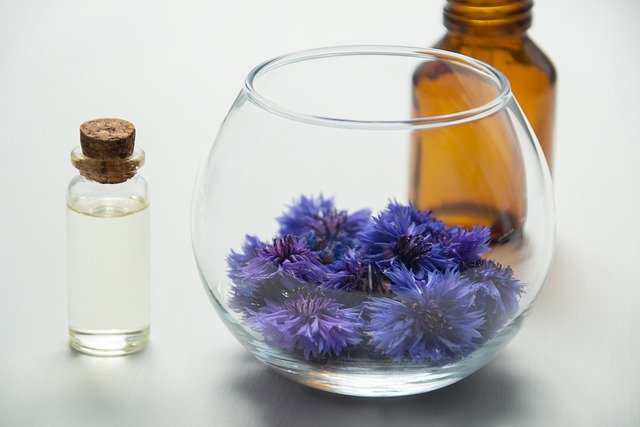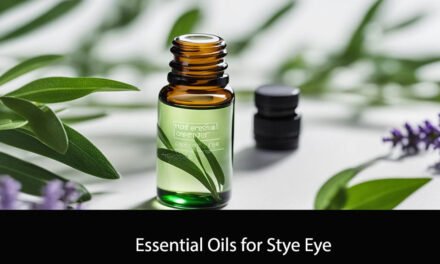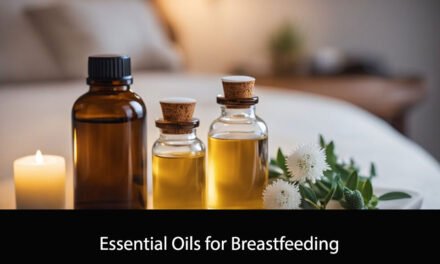Essential oils have been used for centuries to promote relaxation and reduce stress. In recent years, they have gained popularity as a natural remedy for anxiety and OCD. While essential oils are not a substitute for medical treatment, they can be used as a complementary therapy to help manage symptoms.
Research has shown that certain essential oils can have a calming effect on the mind and body. Lavender oil, for example, has been found to reduce anxiety and promote relaxation. Other oils, such as bergamot and ylang-ylang, have been shown to have similar effects.
When using essential oils for anxiety and OCD, it is important to choose high-quality oils and use them safely. Essential oils should never be ingested and should always be diluted before use. It is also important to talk to a healthcare provider before using essential oils as a complementary therapy.

Understanding OCD and Anxiety
What is OCD?
Obsessive-compulsive disorder (OCD) is a mental health disorder that affects both children and adults. People with OCD experience unwanted, intrusive thoughts, images, or impulses, which are called obsessions. These obsessions can cause intense anxiety and distress. In response to their obsessions, people with OCD often perform repetitive behaviors or mental acts, which are called compulsions. These compulsions are often aimed at reducing the anxiety caused by the obsessions.
OCD is a chronic condition that can significantly impact a person’s daily life. It can affect their relationships, work, and overall quality of life. However, with the right treatment, people with OCD can manage their symptoms and lead fulfilling lives.
What is Anxiety?
Anxiety is a normal emotion that everyone experiences from time to time. It is the body’s natural response to stress and danger. However, for some people, anxiety can become excessive and interfere with their daily life. Anxiety disorders are a group of mental health conditions that cause intense, persistent feelings of fear, worry, or apprehension.
There are several types of anxiety disorders, including generalized anxiety disorder (GAD), panic disorder, social anxiety disorder, and specific phobias. Each type of anxiety disorder has its own set of symptoms and triggers. Common symptoms of anxiety disorders include excessive worry, restlessness, irritability, muscle tension, and sleep disturbances.
Anxiety disorders can be treated with therapy, medication, or a combination of both. With the right treatment, people with anxiety disorders can manage their symptoms and improve their quality of life.
Essential Oils: An Overview
What are Essential Oils?
Essential oils are highly concentrated natural extracts derived from plants. They are obtained through a process of steam distillation, cold pressing, or solvent extraction. Essential oils are composed of various chemical compounds that give them their characteristic aroma and therapeutic properties.
How Do Essential Oils Work?
When inhaled or applied to the skin, essential oils interact with the body’s olfactory and limbic systems. The olfactory system is responsible for processing smells, while the limbic system controls emotions, behavior, and memory. Essential oils can affect both systems, leading to changes in mood, stress levels, and cognitive function.
Essential oils can also be absorbed into the bloodstream and travel to different parts of the body, where they can exert their therapeutic effects. For example, lavender essential oil has been shown to reduce anxiety and promote relaxation, while peppermint essential oil can help alleviate headaches and improve mental clarity.
It is important to note that while essential oils can be helpful for managing symptoms of anxiety and OCD, they should not be used as a substitute for professional medical treatment. It is always best to consult with a healthcare provider before using essential oils or any other natural remedies.
Essential Oils for OCD
When it comes to managing OCD symptoms, essential oils can be a useful addition to your self-care routine. Here are a few essential oils that have been shown to help with OCD:
Lavender
Lavender is a popular essential oil known for its calming properties. It can help reduce anxiety and promote relaxation, which can be helpful for those with OCD. Some studies have even shown that lavender may be effective in reducing OCD symptoms.
To use lavender oil, try adding a few drops to a diffuser or mixing it with a carrier oil and applying it to your skin. You can also try adding a few drops to a warm bath or using a lavender-scented pillow spray to help you sleep.
Chamomile
Chamomile is another essential oil that is known for its calming effects. It can help reduce anxiety and promote relaxation, which can be beneficial for those with OCD. Some studies have shown that chamomile may be effective in reducing symptoms of anxiety and depression, which are common in those with OCD.
To use chamomile oil, try adding a few drops to a diffuser or mixing it with a carrier oil and applying it to your skin. You can also try drinking chamomile tea or using a chamomile-scented pillow spray to help you sleep.
Ylang Ylang
Ylang ylang is a sweet-smelling essential oil that is known for its calming and relaxing effects. It can help reduce anxiety and promote feelings of well-being, which can be helpful for those with OCD. Some studies have shown that ylang ylang may be effective in reducing symptoms of anxiety and depression.
To use ylang ylang oil, try adding a few drops to a diffuser or mixing it with a carrier oil and applying it to your skin. You can also try adding a few drops to a warm bath or using a ylang ylang-scented pillow spray to help you sleep.
Remember, essential oils should not be used as a substitute for professional medical treatment. If you are experiencing severe OCD symptoms, it’s important to seek help from a mental health professional.

Essential Oils for Anxiety
When it comes to managing anxiety, essential oils can be a great natural solution. Here are three essential oils that can help:
Bergamot
Bergamot essential oil is known for its calming properties, making it a popular choice for anxiety relief. It has a citrusy scent that can help to uplift your mood and reduce stress levels. Bergamot can also help to reduce symptoms of depression and improve overall emotional wellbeing.
To use bergamot essential oil for anxiety, you can add a few drops to a diffuser or mix it with a carrier oil and apply it topically. Keep in mind that bergamot oil can increase your sensitivity to sunlight, so it’s important to avoid direct sun exposure after using it.
Rose
Rose essential oil is another great option for anxiety relief. It has a sweet, floral scent that can help to promote relaxation and reduce stress levels. Rose oil is also known for its ability to improve mood and increase feelings of happiness.
To use rose essential oil for anxiety, you can add a few drops to a diffuser or mix it with a carrier oil and apply it topically. Rose oil can also be added to a warm bath for a soothing and relaxing experience.
Vetiver
Vetiver essential oil has a grounding and calming effect, making it a popular choice for anxiety relief. It has a woody, earthy scent that can help to promote relaxation and reduce stress levels. Vetiver oil is also known for its ability to improve focus and concentration.
To use vetiver essential oil for anxiety, you can add a few drops to a diffuser or mix it with a carrier oil and apply it topically. Vetiver oil can also be added to a warm bath or used in a massage oil for a relaxing and calming experience.
It’s important to note that while essential oils can be a helpful tool for managing anxiety, they should not be used as a replacement for professional medical treatment. Always talk to your healthcare provider before trying any new treatment for anxiety.
How to Use Essential Oils for OCD and Anxiety
When it comes to using essential oils for OCD and anxiety, there are several methods to choose from. Here are the three most common ways to use essential oils:
Inhalation
Inhaling essential oils is a popular way to experience their benefits. You can use a diffuser, which disperses the oil into the air, or you can simply inhale the oil directly from the bottle. Here are some tips for inhalation:
- Add a few drops of essential oil to a diffuser and let it run for 30-60 minutes at a time.
- Place a few drops of essential oil on a tissue or cloth and hold it up to your nose, taking deep breaths.
- Add a few drops of essential oil to a bowl of hot water, cover your head with a towel, and inhale the steam.
Some of the best essential oils for inhalation include lavender, chamomile, and bergamot.
Topical Application
Applying essential oils topically is another effective method for treating OCD and anxiety. Here are some tips for topical application:
- Dilute the essential oil with a carrier oil, such as coconut or jojoba oil, before applying it to your skin.
- Apply the oil to your wrists, temples, or the back of your neck.
- Massage the oil into your skin for a few minutes.
Some of the best essential oils for topical application include frankincense, ylang-ylang, and clary sage.
Bath and Massage
Taking a bath or receiving a massage with essential oils can be a relaxing and therapeutic experience. Here are some tips for using essential oils in the bath or for massage:
- Add a few drops of essential oil to your bath water and soak for 20-30 minutes.
- Mix a few drops of essential oil with a carrier oil and use it for massage.
- Focus on massaging the areas where you hold tension, such as your neck, shoulders, and back.
Some of the best essential oils for bath and massage include sandalwood, jasmine, and vetiver.
Remember to always do a patch test before using essential oils topically and to consult with a healthcare professional if you have any concerns.
Precautions and Side Effects
When using essential oils for OCD and anxiety, it is important to take certain precautions to ensure safe and effective use. While essential oils can be beneficial, they can also have side effects if used improperly.
First and foremost, it is crucial to dilute essential oils before applying them to the skin. Undiluted essential oils can cause skin irritation, redness, and even burns. We recommend using a carrier oil such as coconut or jojoba oil to dilute essential oils before applying them topically.
It is also important to be aware of potential allergic reactions. Some people may be sensitive to certain essential oils and may experience symptoms such as itching, hives, or difficulty breathing. If you experience any of these symptoms, stop using the oil immediately and seek medical attention if necessary.
When using essential oils for inhalation, it is important to use a diffuser or other method of dispersing the oil into the air. Direct inhalation of essential oils can cause irritation to the respiratory system and may even be harmful.
Finally, it is important to keep essential oils out of reach of children and pets. Some essential oils can be toxic if ingested, and even small amounts can cause serious harm.
In summary, essential oils can be a helpful tool for managing OCD and anxiety, but it is important to take precautions to ensure safe and effective use. Dilute oils before applying topically, be aware of potential allergic reactions, use a diffuser for inhalation, and keep oils out of reach of children and pets.

Conclusion
In conclusion, essential oils have shown promise as a complementary therapy for individuals with OCD and anxiety. While more research is needed to fully understand their effectiveness, many individuals have reported positive results from using essential oils as part of their treatment plan.
It is important to note that essential oils should not be used as a replacement for traditional medical treatments. They should be used in conjunction with other therapies, such as medication and therapy, as directed by a healthcare professional.
When using essential oils, it is important to follow proper safety guidelines, such as diluting oils before use and avoiding ingestion. Some essential oils may also interact with certain medications, so it is important to speak with a healthcare professional before incorporating them into your treatment plan.
Overall, essential oils have the potential to be a helpful tool in managing symptoms of OCD and anxiety. However, it is important to approach their use with caution and to always consult with a healthcare professional before incorporating them into your treatment plan.
Frequently Asked Questions
What are some natural ways to reduce OCD and anxiety symptoms?
There are several natural ways to reduce OCD and anxiety symptoms, including exercise, meditation, deep breathing exercises, and aromatherapy. These methods can help to calm the mind and reduce stress levels, which can lead to a reduction in symptoms.
What essential oils are known to have calming effects on the mind and body?
Several essential oils are known to have calming effects on the mind and body, including lavender, chamomile, bergamot, ylang-ylang, and frankincense. These oils can be used in aromatherapy, massage, or diffused into the air to promote relaxation and reduce anxiety.
Can essential oils be used as a complementary therapy for OCD and anxiety?
Yes, essential oils can be used as a complementary therapy for OCD and anxiety. They can be used in conjunction with traditional therapies, such as medication and psychotherapy, to help manage symptoms and promote relaxation.
What are the benefits of using essential oils for brain health?
Essential oils have been shown to have several benefits for brain health, including reducing stress and anxiety, improving mood, and promoting relaxation. They can also help to improve cognitive function and memory.
Are there any specific essential oils recommended for improving memory?
Yes, several essential oils are recommended for improving memory, including rosemary, peppermint, lemon, and basil. These oils can be used in aromatherapy or diffused into the air to promote mental clarity and improve memory.
What alternative therapies can be used in conjunction with neurofeedback for OCD treatment?
Several alternative therapies can be used in conjunction with neurofeedback for OCD treatment, including meditation, deep breathing exercises, and aromatherapy. These therapies can help to promote relaxation and reduce anxiety, which can help to improve the effectiveness of neurofeedback therapy.





